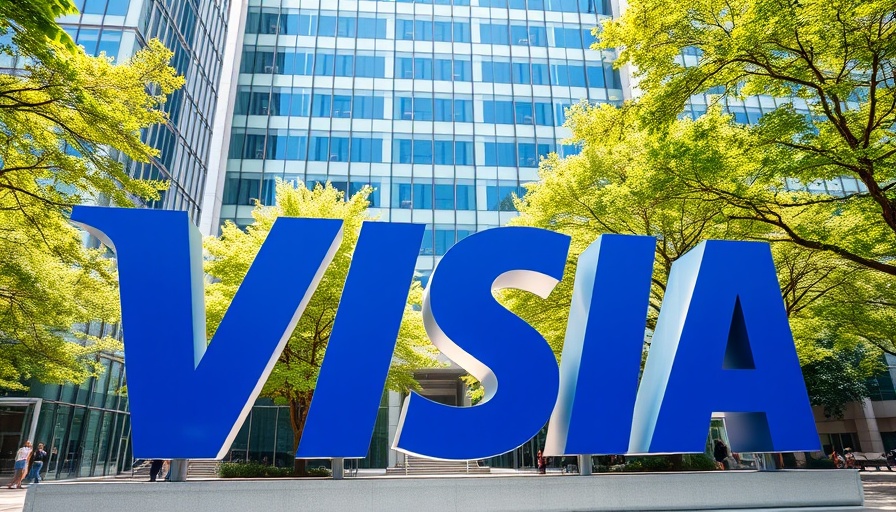
Visa's Bold Shift: Why It Closed Its Open Banking US Operations
In a significant move, Visa has decided to shut down its open banking business in the U.S., focusing instead on expanding in high-potential markets such as Europe and Latin America. This decision highlights not only Visa's strategic redirection but also the evolving landscape of fintech and regulatory challenges that impact access to banking data.
Understanding the Regulatory Climate Behind Visa’s Decision
Visa's exit from the U.S. open banking market cannot be simplified to just corporate choice; it comes against a backdrop of regulatory uncertainty. Banks like JPMorgan Chase have indicated plans to start charging fees for access to consumer banking data, raising alarm bells within the fintech community. The Consumer Financial Protection Bureau (CFPB) is currently in a review phase concerning open banking rules, particularly regarding data privacy and security issues. As these regulations develop, they create a murky environment that makes long-term investments in the U.S. open banking sector feel risky for major players like Visa.
The Global Opportunities Awaiting Visa
With the retreat from the U.S. market, Visa is setting its sights on Europe and Latin America—regions where open banking is seeing increased adoption. According to recent surveys, consumers in these areas show a heightened willingness to engage with open banking products. This readiness may serve to bolster Visa's business prospects in these burgeoning markets, where regulatory frameworks may be more favorable and open to innovation.
Consumer Sentiment: What the Data Tells Us
A recent report from PYMNTS highlights consumer attitudes towards open banking payments. While nearly half of U.S. consumers express a strong willingness to use open banking, only 11% have followed through—indicating a gap that Visa’s strategic focus could help bridge in other markets. Understanding these customer dynamics can guide Visa and other fintech entities as they navigate user engagement strategies in new territories, transforming interest into usage.
Practical Insights for Business Owners in the Fintech Sphere
For business owners generating $2M-$10M in annual revenue, this is a pivotal moment to assess the implications of Visa’s decisions and the broader trends in fintech. A notable takeaway is the importance of aligning business strategies with regulatory developments to ensure compliance while remaining competitive. Exploring partnerships with fintech platforms abroad could open new revenue channels that leverage data-sharing technologies effectively.
The Future of Open Banking: What Lies Ahead
The end of Visa’s U.S. open banking segment signals a pivotal shift in how companies approach this landscape. With the ongoing discussions around data security and potential fee structures, the future of open banking remains uncertain. However, as markets such as Europe and Latin America continue to embrace these technologies, the potential for innovators willing to navigate the complexities of this arena could be substantial. Businesses must remain agile as they incorporate these evolving trends into their operational framework.
In conclusion, as Visa narrows its focus, it compels fintech leaders to reconsider their strategies. Staying informed about regulatory changes, understanding consumer sentiment, and exploring new markets will be critical for capitalizing on the open banking wave. Are you ready to adapt your business strategies to thrive in this changing landscape?
 Add Row
Add Row  Add
Add 



Write A Comment